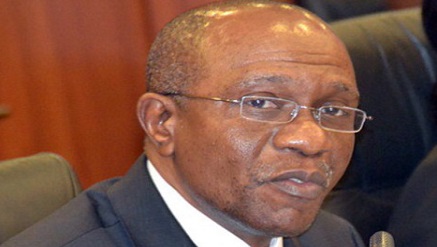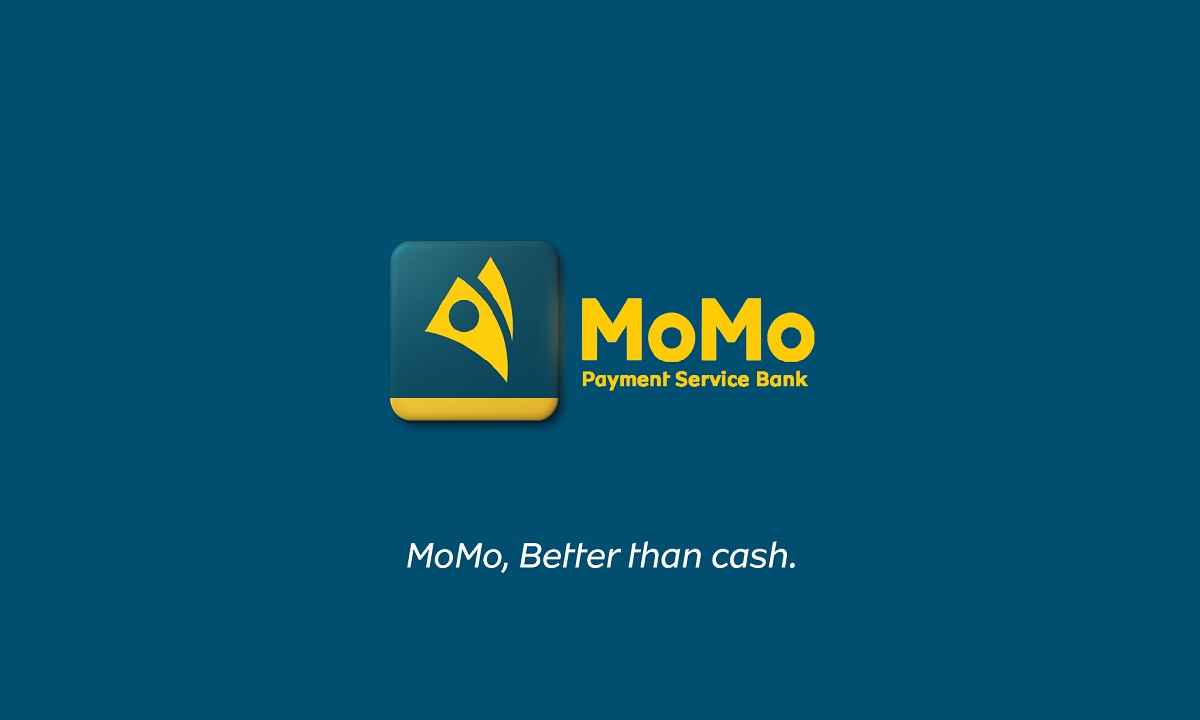E-Financial
SERAP Asks CBN to Provide Information on Money Laundering to Boko Haram

The Socio-Economic Rights and Accountability Project, (SERAP) has issued a Freedom of Information request to Godwin Emefiele, governor of Central Bank of Nigeria (CBN) asking him to “urgently provide information about the persons involved in alleged money laundering through the Central Bank of Nigeria to fund the activities of the Boko Haram, which have contributed to the unlawful killings of innocent Nigerians and destruction of property.”
SEAP in a statement signed by Signed Adetokunbo Mumuni, executive director, also asked Emefiele to provide “within 14 days of the receipt and/or publication of this letter information on the exact nature and duration of any such transactions.”
The organisation threatened “all appropriate legal actions under the Freedom of Information Act to compel you to comply with our request.”
In the request dated 15 September 2014 and signed by Mumuni, the organization said that, “Given the involvement of the CBN in this matter and the fact that you are the governor of the bank, we believe that you will be able to use your position and leadership to provide appropriate records and information on what exactly happened.”
“SERAP is concerned about the damaging allegation especially given that the CBN as a regulatory body has a responsibility under the UN Convention against Corruption and other national laws to prevent money laundering in banks, and to ensure that its systems are transparent and accountable to the Nigerian people,” the organization said.
The organization also said that, “It is necessary to provide clarity as to what exactly happened through the CBN if the bank is to continue to play a leadership role in the fight against corruption and money laundering, and to enjoy the public trust and confidence essential for its effectiveness.”
“Providing the information would also help to ensure full accountability for those involved in international crimes, and contribute to the process of providing effective remedies for victims,” the organization added.
According to the organization, “By virtue of Section 1 (1) of the Freedom of Information (FOI) Act 2011, SERAP is entitled as of right to request for or gain access to information, including information on any transaction or money laundering activities that may have been carried out through the CBN, and the said information is in the custody or possession of any public official, agency or institution.”
The organization also said that, “By virtue of Section 4 (a) of the FOI Act when a person makes a request for information from a public official, institution or agency, the public official, institution or urgency to whom the application is directed is under a binding legal obligation to provide the applicant with the information requested for, except as otherwise provided by the Act, within 7 days after the application is received. By Sections 2(3)(d)(V) & (4) of the FOI Act, there is a binding legal duty to ensure that documents containing information relating to alleged money laundering through the CBN is widely disseminated and made readily available to members of the public through various means.”
According to the organization, “The information being requested does not come within the purview of the types of information exempted from disclosure by the provisions of the FOI Act.
The information requested for, apart from not being exempted from disclosure under the FOI Act, bothers on an issue of national interest, public peace and concern, interest of human rights, social justice, good governance, transparency and accountability.”
“The disclosure of the information requested will give SERAP and the general public a true picture and a clear understanding of the extent of the involvement of the CBN in any money laundering to Boko Haram,” the organization also said.
E-Financial
Banks to Cut Fraud Response Times to Under 30 Minutes

Banks in the country have agreed to reduce fraud response times to under 30 minutes, a move expected to significantly improve recovery outcomes and limit systemic risk, according to the Central Bank of Nigeria (CBN).

This disclosure was made on Wednesday by Philip Ikeazor, deputy governor, Financial System Stability, at the 2026 Nigeria Electronic Fraud Forum (NeFF) Technical Kick-Off Session held in Lagos.
Represented by Ibrahim Hassan, Ikeazor said fraud mitigation efforts within the banking industry have continued to evolve in response to increasingly sophisticated threat vectors. While legacy forms of fraud such as ATM card cloning have largely been neutralised, newer risks including online fraud, social engineering, SIM-swap abuse, insider compromise and authorised push payment (APP) scams have emerged as major challenges.
According to him, NeFF has played a pivotal role in coordinating timely and industry-wide responses to these emerging risks. These interventions include the introduction of mandatory two-factor authentication, issuance of industry advisories, sustained public awareness campaigns, the establishment of 24/7 bank fraud desks and, more recently, the development of a Standardised APP Scam Framework.
“Importantly, the industry has agreed to reduce fraud response times to under 30 minutes, a decisive step that materially improves recovery outcomes and limits systemic exposure,” Ikeazor said.
He noted that a major enabler of fraud reduction in Nigeria has been the country’s progress in identity management. The introduction of the Bank Verification Number (BVN), alongside its ongoing integration with the National Identification Number (NIN), has significantly constrained impersonation and synthetic identity fraud.
According to him, enhanced identity verification across banking channels, agent networks and high-risk digital platforms is steadily closing loopholes previously exploited by criminals. He added that this development reinforces the importance of identity infrastructure as a foundational control for payment system integrity, with the National Identity Management Commission (NIMC) remaining a key partner in strengthening fraud prevention efforts.
“Equally transformative is the industry’s migration to ISO 20022. Beyond compliance, ISO 20022 provides richer, structured transaction data that enhances traceability, analytics and early fraud detection,” Ikeazor said.
He explained that as banks, payment service providers and financial infrastructure operators complete implementation across real-time gross settlement (RTGS) and instant payment systems, data quality and transparency are expected to improve materially. This, he said, would enable faster investigations, better fraud pattern recognition and more effective cross-border cooperation.
“This alignment with global standards positions Nigeria to confront increasingly sophisticated fraud schemes with modern, data-driven tools,” he added.
Ikeazor further noted that over the past decade, Nigeria’s electronic payments ecosystem has recorded substantial progress in resilience, security and public confidence. Despite rapid expansion across ATM, POS, mobile and interbank payment channels, system uptime, operational stability and fraud controls have improved markedly.
He attributed this progress to early regulatory interventions, industry-wide adoption of EMV standards, stronger cybersecurity frameworks, enhanced consumer protection measures and sustained collaboration through NeFF. As a result, he said Nigeria’s payments system now compares favourably with global peers in cyber-fraud management, despite exponential growth in digital transaction volumes.
Looking ahead to 2026, Ikeazor warned that electronic fraud losses have risen sharply in recent years and must be decisively reversed. He stressed the need for the industry to commit to bold and measurable fraud-reduction targets, supported by clear strategic priorities.
These include full exploitation of ISO 20022 data, universal and real-time identity verification, enhanced round-the-clock fraud monitoring and response, structured liability-sharing and consumer reimbursement frameworks, deeper engagement with payment service providers and telecoms operators, as well as rigorous performance measurement through transparent scorecards.
“What gets measured must be improved,” he said.
In her opening remarks, Rakiya O. Yusuf, director, Payments System Supervision Department and Chairman, Nigeria Electronic Fraud Forum (NeFF), said that over the past decade, NeFF has provided a trusted platform for regulators and industry stakeholders to jointly strengthen the resilience, security and credibility of Nigeria’s payments system.
Yusuf said sustained collaboration among financial institutions, payment service providers, infrastructure operators, identity management agencies, law enforcement and other partners has delivered meaningful progress in fraud mitigation, even as electronic transactions have expanded rapidly under the cashless policy.
She said key milestones achieved include the migration to EMV chip-and-PIN cards, the introduction of two-factor authentication across electronic channels, enhanced consumer protection measures and the institutionalisation of industry-wide fraud information sharing.
According to her, these interventions led to measurable reductions in fraud losses in earlier years and helped preserve public confidence in digital payments during periods of rapid growth. More recently, she added, improvements in identity management, particularly the rollout of the BVN and its integration with the NIN, have significantly reduced impersonation and the use of false identities for fraud, closing long-standing gaps exploited by criminals across both banking and agent networks.
E-Financial
MoMo PSB Expands Cross-Border Transfers Across Africa

MoMo Payment Service Bank (MoMo PSB), the financial subsidiary of MTN Nigeria, has expanded its cross-border transfer service, extending outbound coverage to additional African markets (including Kenya and South Sudan), while also deepening inbound remittance capabilities from the United Kingdom, United States, Canada, and Europe.

MoMo PSB
With the latest expansion, MoMo PSB customers in Nigeria can now send money to a wider network of African countries, including Ghana, Benin Republic, Rwanda, Togo, Cameroon, DR Congo, Congo Brazzaville, The Gambia, Côte d’Ivoire, Liberia, Malawi, Zambia, Sierra Leone, Uganda, and now Kenya and South Sudan.
On the inbound corridor, customers can conveniently receive international transfers directly into their MoMo wallets from senders across the UK, US, Canada, and Europe. This development reinforces MoMo PSB’s growing role in enabling fast, secure, and inclusive cross-border payments for Nigerians at home and in the diaspora.
The enhanced service offering reflects MoMo PSB’s ongoing commitment to advancing financial inclusion by simplifying the process of moving money across borders. Customers benefit from swift transaction processing, competitive exchange rates, secure transfers, and the ease of receiving funds directly into their MoMo wallets, removing many of the delays and frictions traditionally associated with cross-border remittances.
The expansion is driven by strategic partnerships with Brij, Lightway Finance, and Thunes, leveraging their global payments infrastructure to deliver reliable, efficient, and compliant cross-border transfer experiences.
Speaking on the development, Usoro Usoro, Executive Director, Strategy and Stakeholder Management, MoMo PSB, said: “Through our partnerships with Lightway Finance and Thunes, we have strengthened our international payments infrastructure to support both outbound and inbound remittances across key corridors. This expansion reflects our commitment to building secure, scalable, and inclusive financial solutions that meet the evolving needs of our customers.”
By widening both its sending and receiving corridors, MoMo PSB continues to deepen access to financial services and strengthen Nigeria’s connection to the global economy—making international payments more accessible, affordable, and seamless for individuals and businesses alike. For more information, visit www.momo.ng/internationaltransfers.
E-Financial
Unity Bank Launches Upgraded Unifi App to Boost Digital Banking

Unity Bank Plc has unveiled version 2.3 of its Unifi mobile banking app, boosting usability, security, and convenience to deepen customer experience and advance its e-business strategy.

Unity Bank
Key enhancements include stronger security protocols, quick-action tools, improved bill payments, and an upgraded Nigeria Quick Response (NQR) feature for faster QR transactions.
The rollout underscores the bank’s investments in digital infrastructure to protect data, secure payments, and enable real-time transactions across channels.
Adenike Abimbola, Divisional Head of Retail, SME, Digital Banking & Fintech Partnerships, said the upgrades stem from ongoing customer feedback analysis.
“Digital banking is now essential for retail customers demanding speed, reliability, convenience, and security,” Abimbola stated. “Unifi 2.3 enhances functionality, bolsters security, and simplifies payments for seamless, frictionless access anytime, anywhere.”
She affirmed Unity Bank’s commitment to evolving digital channels amid shifting needs and trends.
“As mobile banking shapes financial services, Unifi drives our strategy for intuitive, inclusive solutions that boost adoption and experience,” she added.
Launched to expand retail reach among young, tech-savvy users, Unifi fuels customer acquisition and Unity Bank’s digital transformation. The app, free on Android and iOS, supports transfers, bills, airtime, and QR payments.

 General News2 days ago
General News2 days agoCybersecurity Firm Detects a Wave of Crypto Phishing Following BlockFi Bankruptcy

 News2 days ago
News2 days agoIMF Upgrades Nigeria’s 2026 Growth Projection to 4.4%

 Telecom2 days ago
Telecom2 days agoNCC Unveils Spectrum Roadmap to Power Nigeria’s $1tr Digital Economy

 Telecom2 days ago
Telecom2 days agoNCC Gives Amazon’s Kuiper, BeetleSat Nod to Provide Satellite Broadband Services in Nigeria

 General News2 days ago
General News2 days agoFG Rejects Northern Elders’ Gold Refinery Siting Claim

 Telecom1 day ago
Telecom1 day agoSpacecoin Secures Licenses to Roll Out Satellite Connectivity in Nigeria, Kenya

 News2 days ago
News2 days agoNew Horizons Invests N50m to Empower Almajiris with Skills

 E-Financial2 days ago
E-Financial2 days agoKongaPay K-Save Users Save over N3.2Bn



























